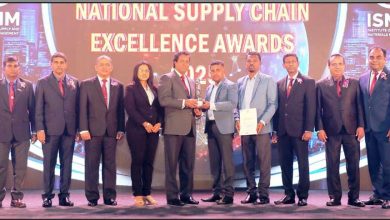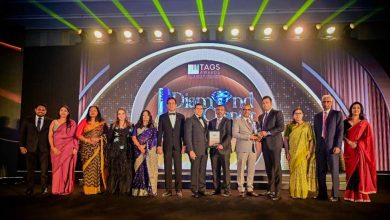PRINCE CLAUS FUND BIENNIAL SYMPOSIUM 2023
Prince Claus Fund Seed Awards
The Prince Claus Seed Awards celebrate and support emerging socially engaged artists and cultural practitioners who harness the transformative power of culture to create lasting positive change in their local communities. The Seed Awards are presented annually to 100 artists and cultural practitioners, offering recognition and financial support of 5,000 euros for recipients to use at their own discretion. At the heart of the Seed Awards is a firm belief that emerging artists who contribute to a better world in contexts where culture is under pressure deserve a chance to experiment, find their path, gain momentum in their work, and access an inspiring international network.
Seed Awardees at the Prince Claus Fund Biennial Symposium 2023 in Sri Lanka
As part of the Prince Claus Fund’s mission to facilitate spaces for the continuous exchange of knowledge within our network and stimulate long-lasting connections between cultural practitioners, we have invited several Seed Awardees to join us as guests and participants at the inaugural Prince Claus Fund Biennial Symposium 2023 in Sri Lanka. In line with the Symposium’s thematic of Legacies of Care, Failures and Emerging Solidarities, the work of the participating Seed Awardees responds to the pressing issues in the local context of the Symposium. From multidisciplinary artist Chathuri Nissansala questioning structures of queerness and nationalism in Sri Lanka to artist Ankur building spaces of ambiguity that decentralise colonial structures in India—these artists and cultural practitioners are collectively activating a sustainable and inclusive future co-existence through the power of culture. Below you can learn more about them and their practices.
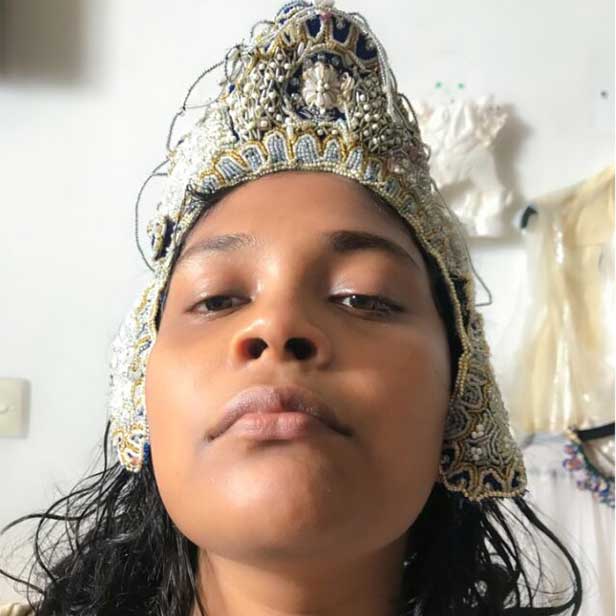
Chathuri Nissansala is a multidisciplinary artist based in Sri Lanka. Chathuri is a recipient of the Commonwealth Scholarship for the South East Asian region by the Indian Council for Cultural Relations, and she holds a master's degree in Visual Arts from the Maharaja Sayajirao University of Baroda. Chathuri works with performance art, painting, sculpture, and graphics, and her works raise poignant questions about structures of gender, queerness, and nationalism in Sri Lanka. She has performed and exhibited across Asia, some of these include a solo exhibition, “Ritualizing the disfigured: Memorials of healing from Sri Lanka” at Anant Art Gallery in Delhi, as part of the “Rehang” exhibition at Bikaner House in Delhi, and at the “Responses to Memory” exhibition at Gillehri Arts Initiative, among others
Parilojithan Ramanathan is a multidisciplinary artist and lens-based medium practitioner based in Sri Lanka. Parilojithan holds a BFA degree with a specialisation in painting from the Ramanathan Academy of Fine Arts at the University of Jaffna. In his artistic practice, he is interested in capturing fleeting moments that often relate to themes such as displacement, impermanence, and despair. As an archivist and documentarian, Parilojithan’s photographic material juxtaposes multitudes of lived experiences with intersections of socio-political phenomena. His collage work is based on personal narratives of migration, dislocation, and a nomadic lifestyle. Parilojithan is the co-founder of “We Are From Here”, a community-based art project on Slave Island in the Colombo suburb of Sri Lanka that aims to show a different side of the local community. He is also the founder of "Batticaloa Photo-History Archives", reading and making history through vintage photographs from personal archives.
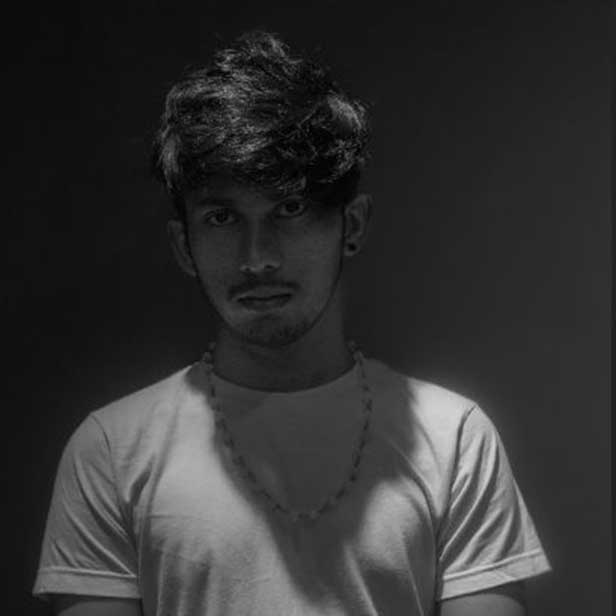
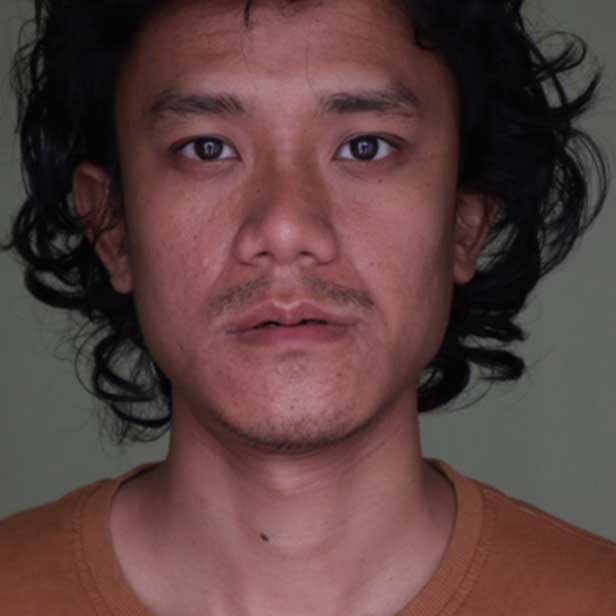
Adit Dewan is a Bangladesh-based filmmaker and programmer. He holds a BS & MS in Zoology from Dhaka University, Bangladesh, and an MA in Film Studies from Jadavpur University, India. As part of the Chakma indigenous community, his filmmaking and curatorial journey is focused on the indigenous themes and people of the Chittagong Hill Tract (CHT). In 2014, he co-founded the Hill Film Festival which highlights films that are made in the indigenous languages of the CHT and other parts of the country. Adit is the current director of the festival and has produced 4 short films and one feature film.
Ankur is a collective-individual artist based in Behror, India. Their practice is nomadic, traversing various concerns and researching alternative modes of economy that involve practices of sharing and care. Their project questions the exploitation of land and people by creating a situation of viewing near mining operations. An earlier series looked closely at the systems of hierarchical and dominating colonial knowledge structures by constructing an alternate space of ambiguity. Ankur has found that engaging with people, stories, and incidents within the community has become critical to their practice which seeks to address the social oppressions stemming from patriarchal structures.
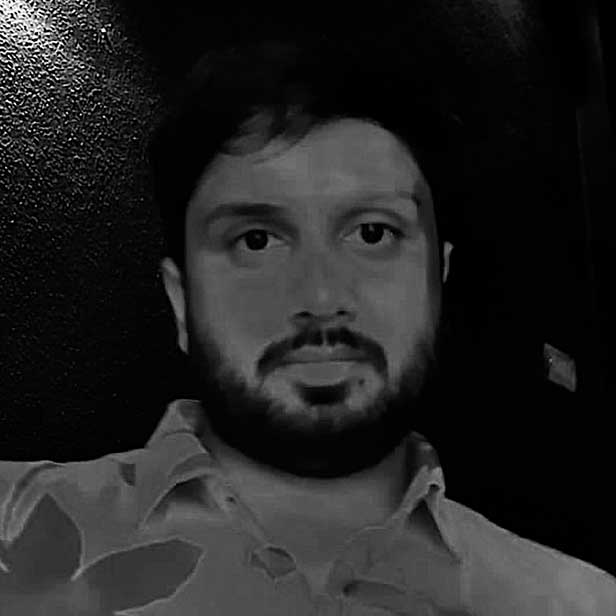
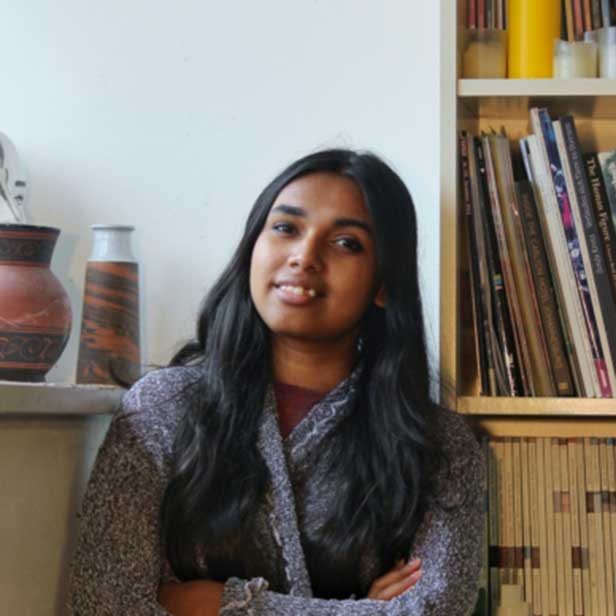
Arpita Akhanda is an artist based in Santiniketan, India, whose work involves paper weavings, performances, installations, drawings, and videos. During her artistic journey, Arpita has performed at Teertha International Performance Platform (Sri Lanka) and Chittagong Art College (Bangladesh). She has participated in the India Art Fair residency program (2022), the Gstatelier Krone Aarau residency program in Switzerland (2021), and the Piramal Art Residency (2019-20). In addition, Arpita has received the Emerging Artist Award Extended Support Platform from FICA and Mrinalini Mukherjee Foundation (2020), the State Award Fellowship in New Media from Prafulla Dahanukar Art Foundation (2019), and the National Scholarship by CCRT Ministry of Culture of India in Painting (2016).
Debashish Paul is an artist from West Bengal, India, who explores the problems of queer identity in a society dominated by heterosexual norms. He has a BFA degree from the Indian College of Art and Draftsmanship and a Master's degree from Banaras Hindu University, both in sculpture studies. Through the mediums of sculptural dress, performance, video, and drawing, he seeks to expand and explore the tabooed conception of homosexuality by unveiling the body, treating it as a tender landscape, and generating new references to queer identities. Debashish works have received several awards, including the Inlaks Fine Art Award 2022 (India) and the Allegro 1st Prize 2021 (Contemporary LYNX, UK).
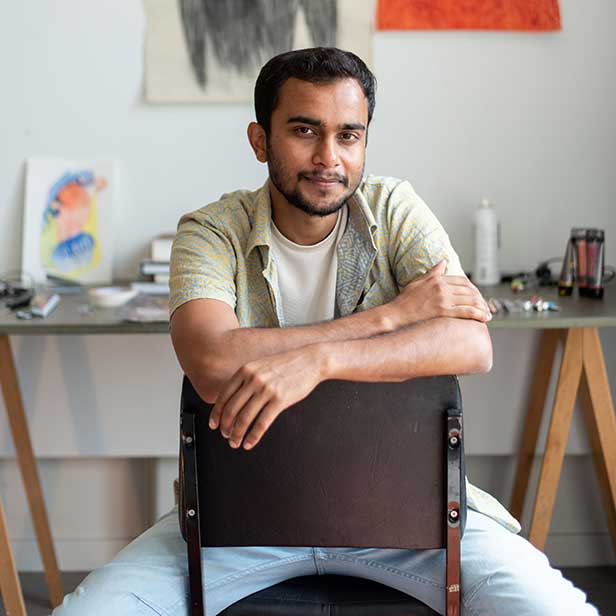
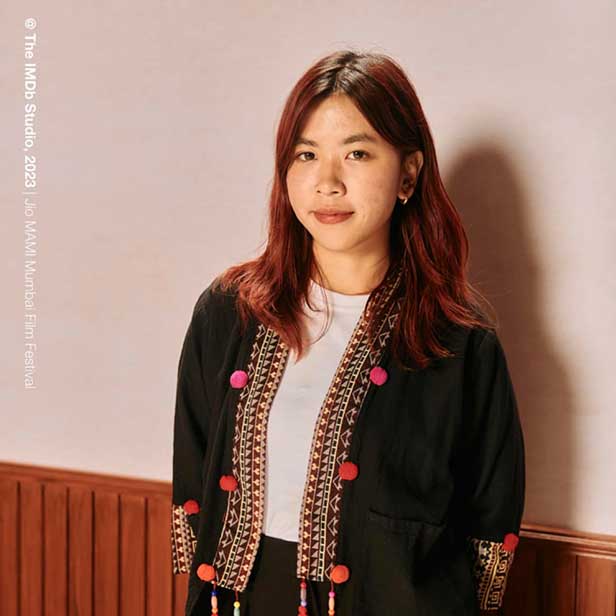
Moe Myat May Zarchi is a filmmaker and audiovisual artist from Myanmar and a graduate of the New York Film Academy (2016). Her films have won awards at the Singapore International Film Festival, Vesoul International Film Festival, and others. She has exhibited her works at the God House Tower (UK), and the National Secretariat (Myanmar), and was a finalist at the Julius Baer Next Generation Art Prize in Moving Images. Moe founded 3-ACT, a cinema organization that publishes cinema magazines and organises workshops and festivals. She also co-founded MATTER Audiovisual Lab, the first interdisciplinary and experimental art platform in Myanmar. In her practice, she explores the metaphysical, identity, femininity, and revolutionary themes through the innovative use of visuals and sound.
Ujjwala Maharjan is a poet and educator from Kathmandu, Nepal. She believes in arts education as a pathway to a more empathetic and inclusive society and explores trauma-informed practices and narrative approaches with artists and educators. Upon her return to Nepal after finishing her Master's in Education at the University of Pennsylvania, she decided to slow down and hold poetry and storytelling workshops. Throughout the pandemic, she was inspired by her former students and colleagues to study and experiment with the art of rap and hip-hop. Ujjwala is one of the co-founders of Word Warriors, a poetry group leading the spoken word movement in Nepal.
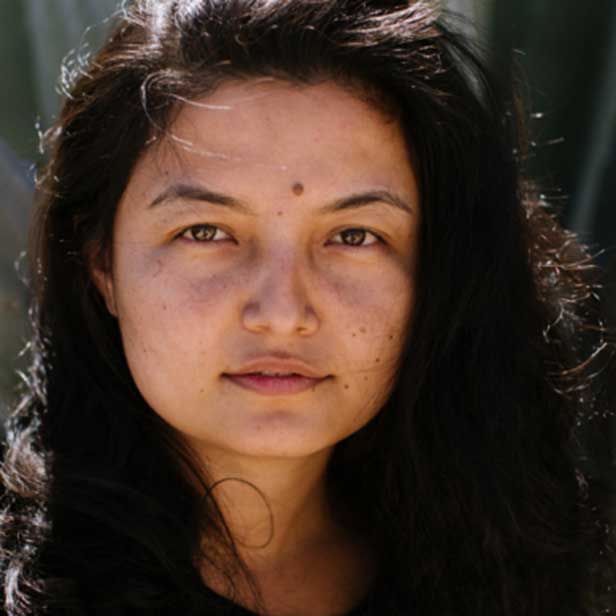
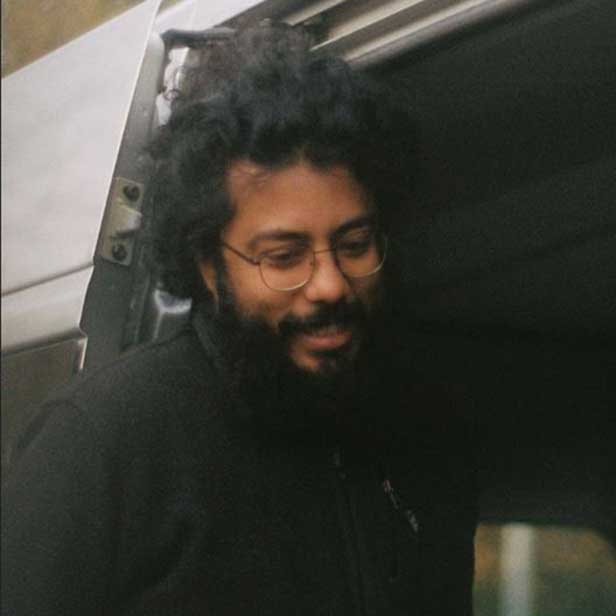
Suranga Katugampala was born in Negombo, Sri Lanka. After the first years of high school, he and his brother followed his mother to Italy where he studied multimedia and computer science. After graduating, Suranga returned to Sri Lanka where he founded FreeshTV, the first Sri Lankan webtv. He later trained as a filmmaker, worked with participatory film labs and continued as an artist, serving as an art director for different media agencies. He actively collaborates with Italy. His first feature-length film "For a Son" focuses on the effects of migration on different generations.
Ammara Jabbar is a visual artist who lives and works in Pakistan. She graduated from the Fine Art Department at the Indus Valley School of Art and Architecture. Ammara's work has been exhibited in various projects, exhibitions and biennales in Karachi. She is also the recipient of the Imran Mir Art Prize in 2018. Her work comments on gender politics mediated through her experiences as a South-Asian female as well as through the body. In her practice, she aims to foster engagement through art and allow for meaningful conversations and critical dialogue with the existing narratives.
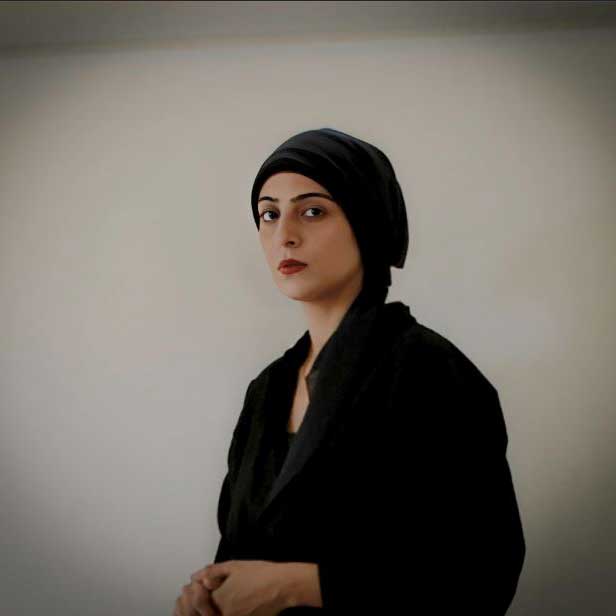
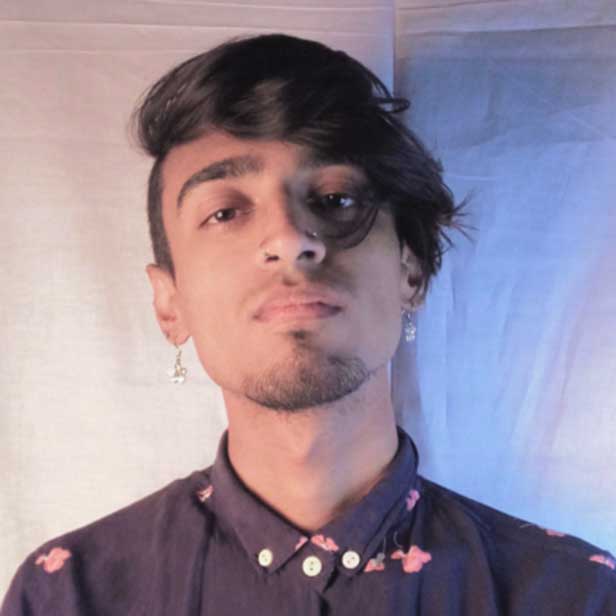
Asad Ali Zulfiqar is a non-binary artist, yogi, survivor of difficult times, reader of texts, maker of maps, and enjoyer of walks, talks and other underrated forms of intimacy, seeking connection. They seek to elevate the mundane and explore compassionate, possibly playful ways of looking at times with intentionality in their art and writing praxes. They are based in Karachi and hold a BA in Communication Studies and Design from Habib University.


